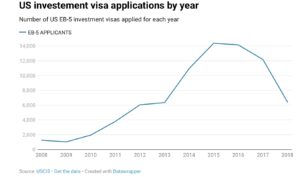/cloudfront-ap-southeast-2.images.arcpublishing.com/nzme/3WT6DPDNRRE2JKT4N246N4BPWM.jpg)
A financial advisory firm specialising in “global citizenship” has been inundated by requests from US clients looking to “invest” in a foreign passport, reported The Washington Post.
The Toronto-based firm Arton Capital says that there has been a 30-40 per cent increase on last year in clients looking to obtain “a second citizenship and passport by investing in the economy of the host country.”
With severe outbreaks of coronavirus closing international borders to travellers from the US, it would appear a second passport has become the final refuge of wealthy Americans.
This limitation of mobility has made more people aware of … the benefits of having more than one passport,” Armand Arton, president of Arton Capital told The Washington Post.
In response to the high community transmission rates, many destinations are refusing inbound travel from the US for all reasons but repatriation.
These travel restrictions have been put in place for public health reasons. However, for those with enough personal wealth, it might still be possible to buy their way out.
Some governments including Portugal, the United Kingdom and the Dominican Republic offer investment-based citizenship as through “job creation and capital investment by foreign investors”. Established to attract investment into local economies, these schemes are essentially passports for sale.
The cost of these “golden visas” ranges from around $100,000 for some Caribbean nations to over $3 million for passports within the EU.
“We’ve had Americans contacting us and saying, ‘Listen, I cannot believe that my American super passport cannot get me into as many countries as it used to before. What can I do?’ “Arton says. “That was never the case for us before.”
New Zealand also offers pathways to citizenship for investors, although notably there are requirements on the amount of time a candidate has spent in the country to qualify for an “Investor” class visa.
An applicant for a class 1 Investor visa must spend an average of 30 days in New Zealand a year over a three-year period, on top of a $2.5 million investment. Due to the closure of New Zealand borders since March to all but New Zealand residents, the process has become far more difficult.
However, this hasn’t stopped wishful thinking. In June the Herald revealed that 112,800 Americans visited the Immigration New Zealand Site, a spike of 160 per cent on last year.
Unlike other pathway’s to residency, many schemes do not require claim by heritage or even having to have ever stepped foot in the country, which makes them extremely appealing as an investment.
Residency via investment it is not a quick process. For most countries it can take months even years to have residency granted. Applicants and the source of their investments are subject to scrutiny.
“The one thing that we do have to explain to clients is this will take longer than you think”, says Paddy Blewer, PR director for Henley & Partners. Applicants are up to “hardcore investigation” not only by the country granting prospective citizenship, but also the agencies themselves.
Henley & Partners which helps clients with citizenship-via-investment programmes and also keeps track of the Henley & Partners passport rankings says they are very discerning with the clients they take on.
“We do that because we care about our reputation. We do that because we want to be around for the next 20 years.”

The US also offers a pathway to citizenship though investment via the EB5 visa.
The scheme which was established in 1990 was opened up to international investors willing to put between $1.3 and $2.7million into qualifying schemes in the States.
The USCIS has granted almost 80,000 paid-for visas via the programme, though demand for US citizenship via investment tailed off dramatically since 2016. The appeal of American citizenship began to lose its lustre, even before the coronaviurs pandemic.
Last month reports by the Passport Index and Henley and Partners Passport Rankings found a dramatic reordering in the value of international travel documents. Comparing passports by the number of countries offering visa-free to holders, the US passport in particular had suffered since the outbreak the Covid 19 crisis.
The Passport Index recently recorded a 20-place fall for the US passport, with 86 countries having put a coronavirus related ban on travellers from the US.

Leave A Comment